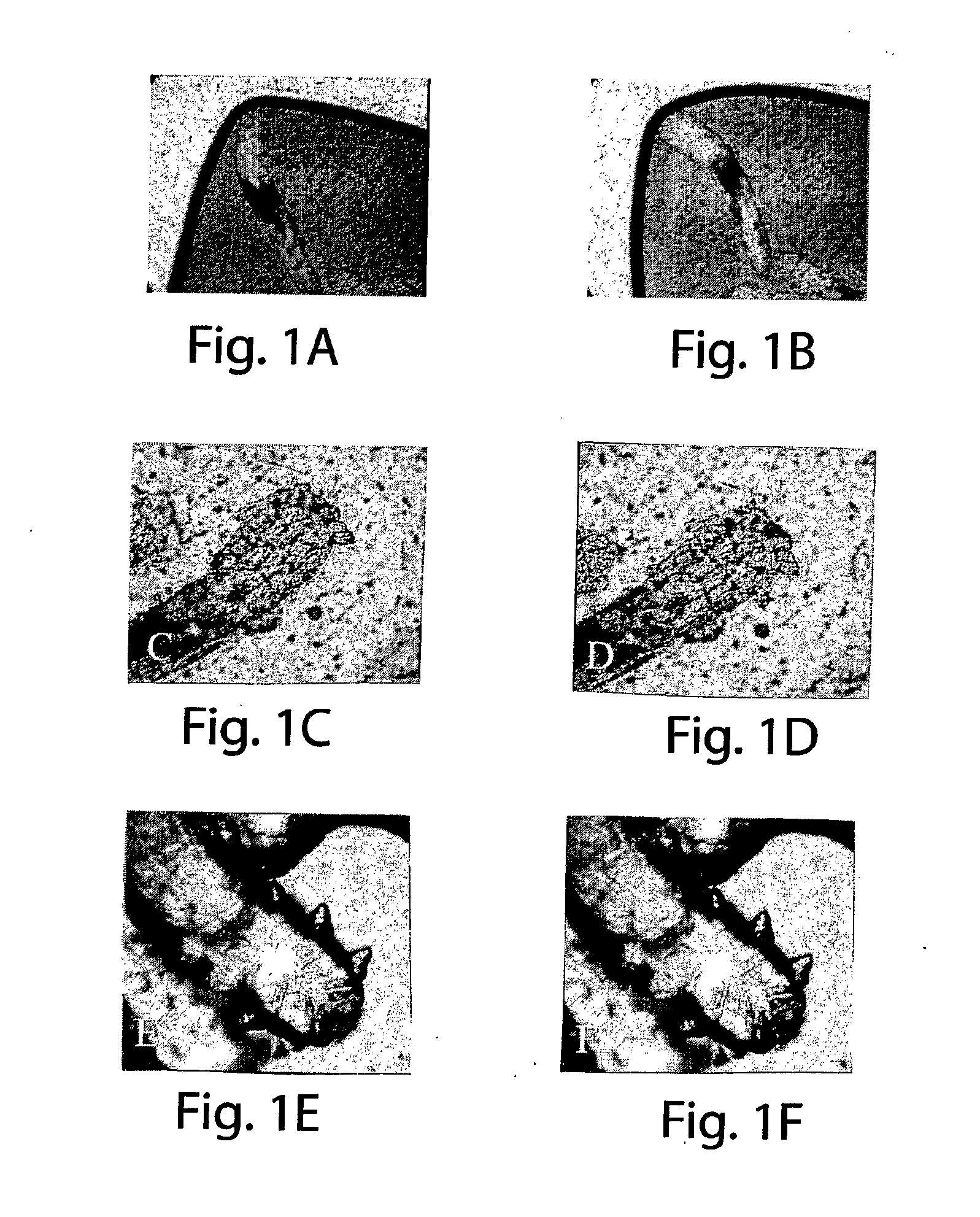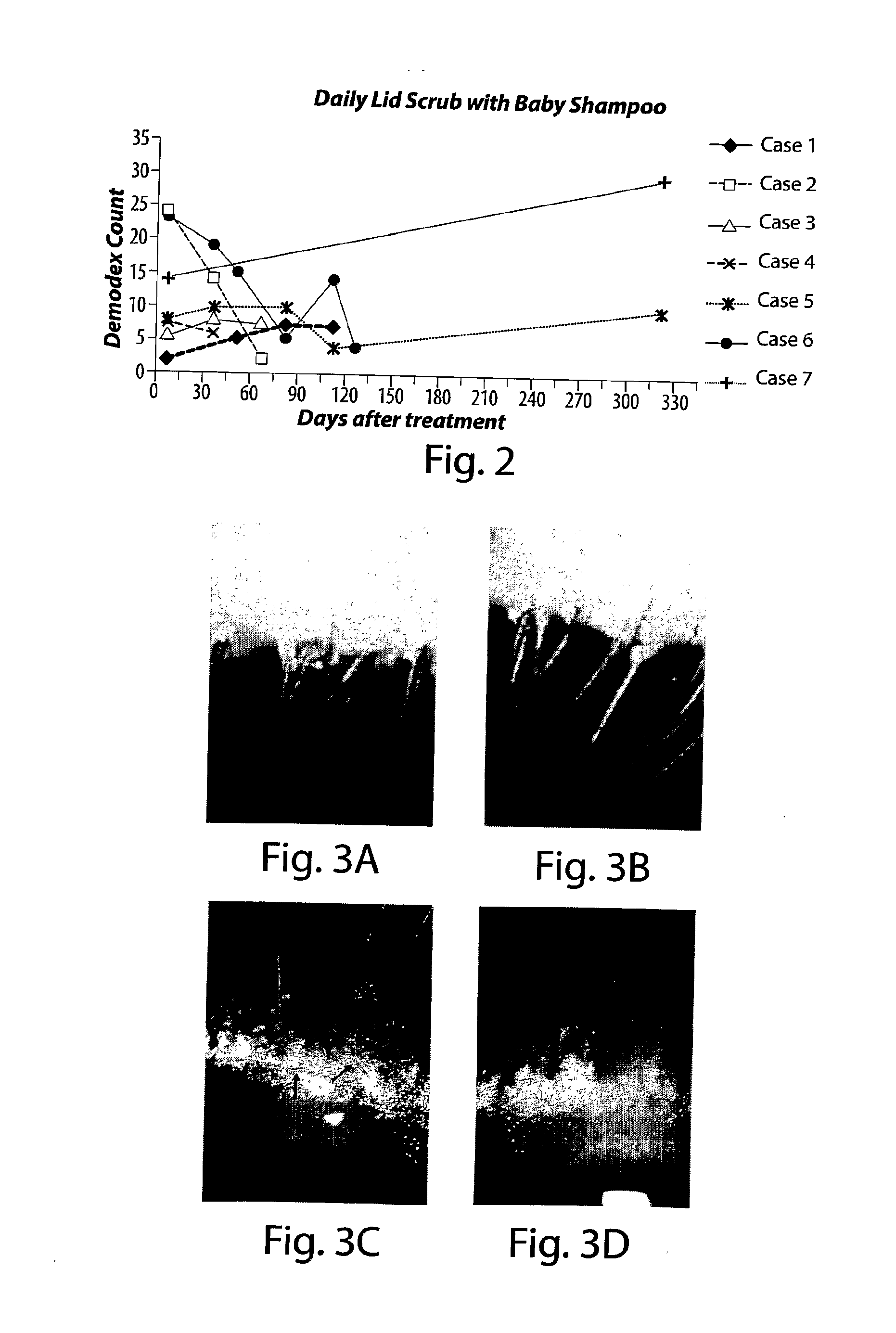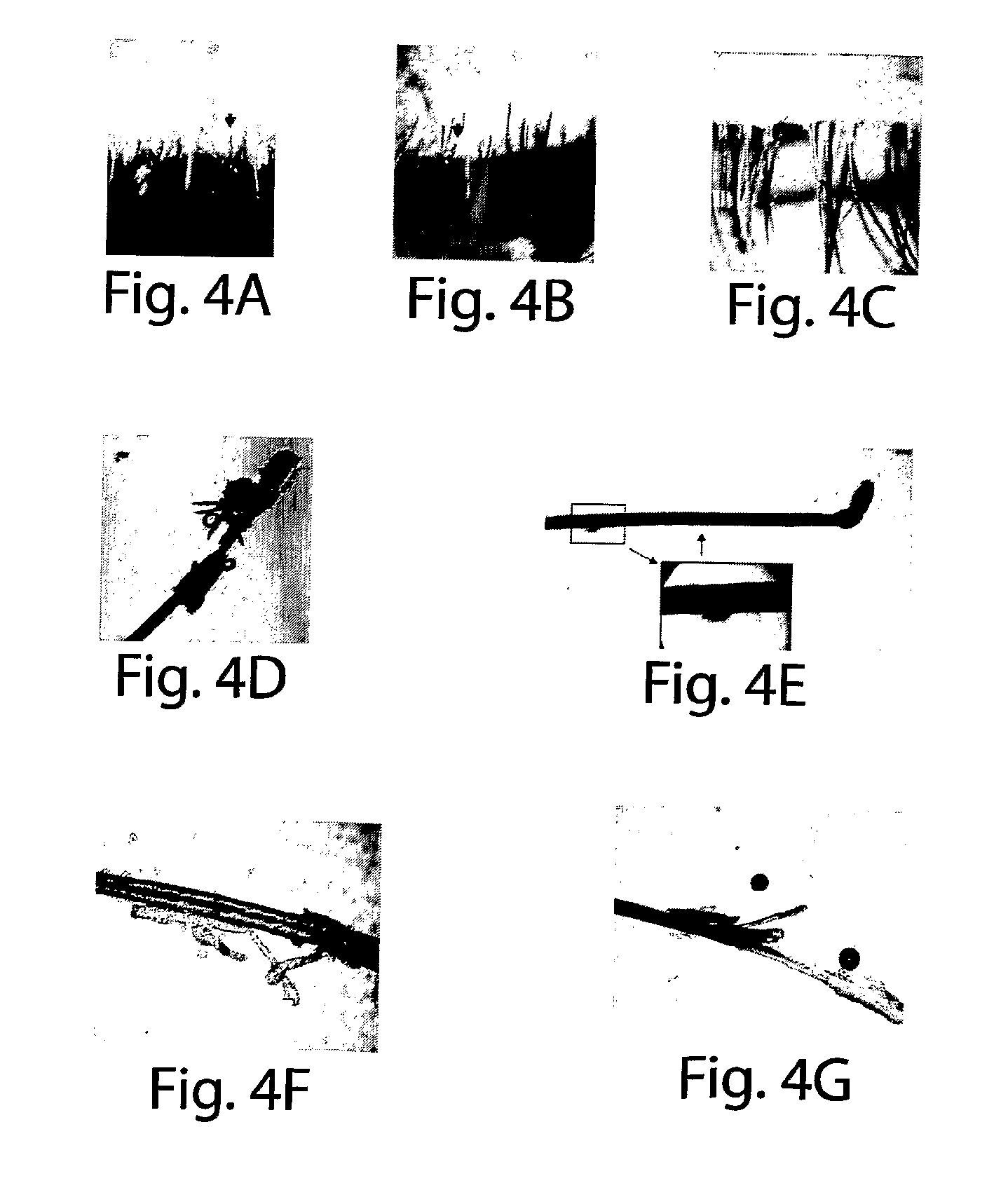Method for Treating Ocular Demodex
a technology for ocular demodex and ocular artery disease, which is applied in the direction of biocide, plant/algae/fungi/lichens, biocide compositions, etc., can solve the problems of blepharitis, no significant improvement, and inflammation of the edge of the eyelid, and achieves no significant improvement. , the effect of reducing the number of eyelid ulcers
- Summary
- Abstract
- Description
- Claims
- Application Information
AI Technical Summary
Benefits of technology
Problems solved by technology
Method used
Image
Examples
case example no.1
Case Example No. 1
[0143]A 68 year-old female complained of foreign body sensation, redness and itching in the left eye for 2 years. On Feb. 4, 2004, she received surgery to remove primary pterygium and reconstruction with amniotic membrane transplantation. The pterygium recurred on May 4, 2004, and she received another pterygium removal and reconstruction with conjunctival autograft from the right eye. Nevertheless, the pterygium recurred shortly afterwards, and she was referred to Ocular Surface Center for being considered for re-operation for her multi-recurrent pterygium (FIG. 6A). On Jul. 7, 2004, besides recurrent pterygium, she was found to have meibomian gland dysfunction, conjunctivochalasis, and aqueous tear and lipid tear deficiency dry eye. Furthermore, her lashes were loaded with diffuse cylindrical dandruff (CD) (FIG. 6B). The diagnosis of ocular demodicosis was made because of a high demodex count of 19 per 8 lashes (i.e., 19 demodex mites found in a total of 8 lashes ...
case example no.2
Case Example No. 2
[0146]An 81 year-old male complained of dryness in the left eye worse than the right eye and chronic irritation for the past 4 years. His left eye received 6 times of glaucoma drainage implant surgeries for primary open angle glaucoma. On Nov. 11, 2002, he was referred to Ocular Surface Center and was found to have exposure keratopathy due to ectropion, misdirected lashes, cicatricial keratoconjunctivitis (thought to be due to old trachoma), meibomian gland dysfunction with lipid tear deficient (LTD) dry eye, and delayed tear clearance in both eyes. His conjunctiva was inflamed. His left eye was treated with non-preserved 1% methylprednisolone drops, and then with symblepharonlysis, fornix reconstruction, intraoperative application of mitomycin C, and amniotic membrane transplantation on Jan. 17, 2003. He also received subconjunctival injection of long-acting steroid (Keralog®) in the left eye on Jan. 7, 2003 and horizontal lid tightening of both lower lids on May ...
case example no.3
Case Example No. 3
[0148]A 55 year-old female complained of foreign body sensation and irritation in the left eye worse than the right eye for 5 years. She received bilateral upper lid blepharoplasty in 1998, and surgical excision of conjunctival cysts for 3 times, epilation of trichiasis, and insertion of punctual plugs in 2002. Because of persistent foreign body sensation and chronic irritation, she was referred to Ocular Surface Center and found on Jul. 17, 2002 to have trichiasis (2 on the left upper lid), meibomian gland dysfunction, and lipid tear deficient dry eye. She received 0.2% non-preserved dexamethasone eye drops, epilation, subconjunctival injection of long-acting steroid (KERALOG®). On Aug. 12, 2004, she received excision of conjunctivochalasis and reconstruction with amniotic membrane transplantation in the left eye, and wore a bandage contact lens postoperatively. Despite these treatments, she continued to complain of these symptoms. On Nov. 15, 2004, her lashes wer...
PUM
 Login to View More
Login to View More Abstract
Description
Claims
Application Information
 Login to View More
Login to View More - R&D
- Intellectual Property
- Life Sciences
- Materials
- Tech Scout
- Unparalleled Data Quality
- Higher Quality Content
- 60% Fewer Hallucinations
Browse by: Latest US Patents, China's latest patents, Technical Efficacy Thesaurus, Application Domain, Technology Topic, Popular Technical Reports.
© 2025 PatSnap. All rights reserved.Legal|Privacy policy|Modern Slavery Act Transparency Statement|Sitemap|About US| Contact US: help@patsnap.com



